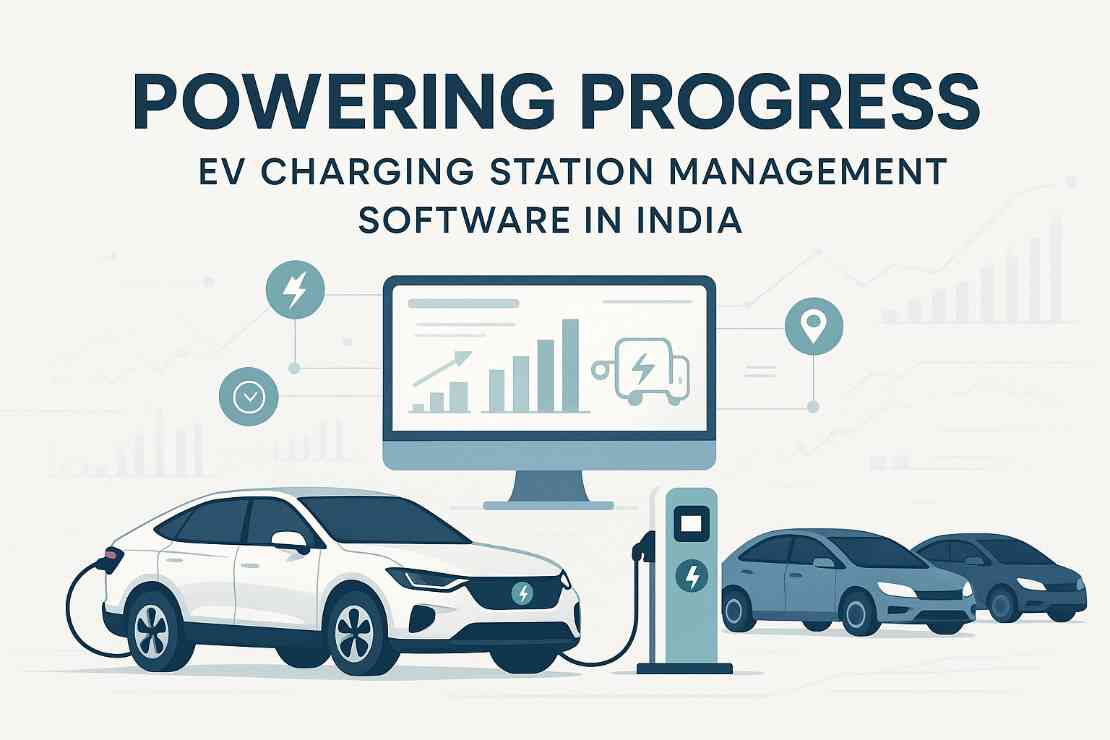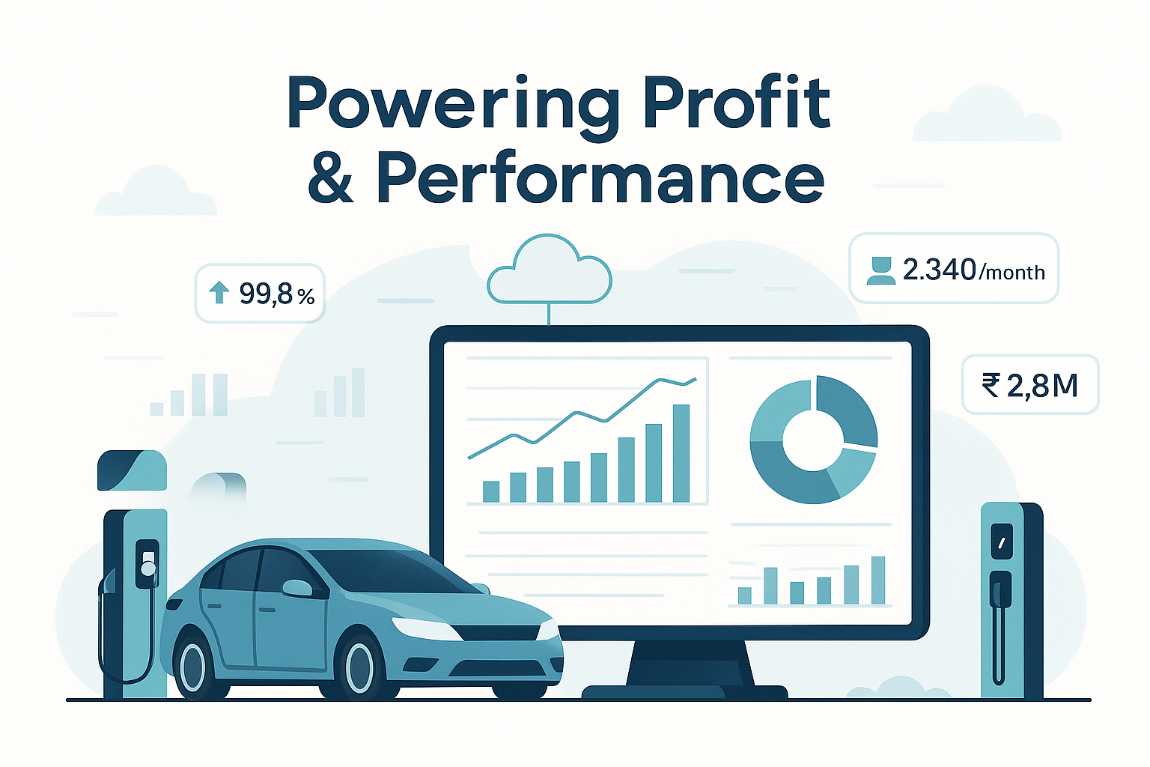The transition to sustainable transportation in India depends on removing barriers to electric vehicle (EV) adoption. Among all Indian states, Rajasthan has emerged as a frontrunner, launching a comprehensive policy framework to build reliable, accessible, and cost-effective charging infrastructure.
The Rajasthan Electric Vehicle Charging Infrastructure Policy 2022–2027 establishes clear rules, incentives, and procedures designed to accelerate the deployment of public and private charging stations across the state. This guide offers a detailed, professional explanation of all aspects of the policy—so you understand exactly how Rajasthan plans to become a leader in EV infrastructure.
Vision and Purpose
Rajasthan’s policy begins with a clear vision:
Develop a wide network of EV charging stations across urban, rural, and highway areas, reducing range anxiety and supporting a seamless transition away from internal combustion engines.
The Government of Rajasthan recognizes that without a strong charging ecosystem, consumers will remain hesitant to adopt electric mobility. This policy aims to address that hesitation by removing regulatory hurdles, offering financial incentives, and promoting renewable energy integration.
Regulatory Clarity and Institutional Roles
De-Licensing of Charging Activities
The policy defines setting up charging stations as a de-licensed activity. No special permissions are required. This simple provision:
- Reduces regulatory bottlenecks
- Encourages faster project initiation
- Signals that Rajasthan is serious about attracting private investment in EV infrastructure
Any enterprise, Discom, or public-private partnership can build and operate stations in line with technical standards.
Nodal Agency for Implementation
The Jaipur Vidyut Vitaran Nigam Limited (JVVNL) has been designated as the nodal agency for the state. JVVNL is responsible for:
- Coordinating infrastructure development
- Setting a ceiling for service charges at public charging stations
- Processing applications for electricity connections
Having a single nodal agency minimizes confusion and provides a clear point of contact for all stakeholders.
Public and Private Charging Provisions
Private Charging at Home and Office
The policy explicitly permits private charging through existing power connections. Whether at a residence or workplace, EV owners can set up chargers without additional licensing.
Recognizing that vehicles spend much of their time parked at home or office, the government expects private charging to become the primary mode of replenishing vehicle batteries.
Public Charging Stations
Public charging infrastructure is equally critical. The policy envisions stations operated by:
- State Discoms
- Private companies
- Public-private partnerships
Operators may purchase power from any source via the open access route, under Rajasthan’s Open Access Regulations, 2016. This provision supports cost-competitive procurement of electricity.
Land Use Norms and Building Bye-laws
Land selection and building codes can present significant challenges for infrastructure developers. To reduce these obstacles, the policy specifies:
- Land for public charging stations must comply with local body regulations, but conversion of land up to a specified area does not require additional approval.
- The Rajasthan government will amend the Rajasthan Model Building Bye-laws 2020, aligning them with the Ministry of Housing and Urban Affairs’ 2016 model amendments. This ensures:
- Consistent land use norms
- Clear procedures for integrating charging infrastructure into new and existing buildings
- Consistent land use norms
Incentives to Promote Public Charging and Battery Swapping
The policy provides targeted financial incentives to offset setup costs and encourage entrepreneurs to invest.
SGST Reimbursement on EVSE
Private enterprises purchasing Fast Charging Electric Vehicle Supply Equipment (EVSE) to set up public charging stations will receive:
- SGST reimbursement up to a specific amount and number of installations
- Lower capital expenditure and reduced payback period
Reimbursement of Upstream Electricity Infrastructure Costs
One of the largest cost components in establishing a station is bringing power to the site. To address this:
- Rajasthan offers 100% reimbursement of the actual upfront cost incurred for setting up the upstream electricity infrastructure.
- The reimbursement is capped at INR 5 lakhs per charging station.
- The benefit applies to the first 100 public fast charging or swapping stations established during the policy period.
Benefits Under RIPS 2019
The policy classifies EV Charging and Swapping Stations as a thrust sector under the Rajasthan Investment Promotion Scheme (RIPS), 2019. Investors making at least Rs. 25 lakhs in capital expenditure can choose one of two benefits:
- Interest Subsidy
- 5% subsidy on term loans
- Up to Rs. 2 lakhs per year
- Duration: Five years
- 5% subsidy on term loans
- Capital Subsidy
- 20% subsidy on equipment investment
- Maximum subsidy: Rs. 4 lakhs
- 20% subsidy on equipment investment
These incentives are designed to de-risk investments and attract serious players to the market.
Power Tariff for Electric Vehicle Charging

Rajasthan Electricity Regulatory Commission (RERC) has issued a clear, predictable tariff structure.
Tariff Details
Time-of-Day Rebate
The policy introduces a Time-of-Day rebate of 15% on energy charges during 11 PM to 6 AM. This measure:
- Incentivizes nighttime charging
- Reduces stress on the grid during peak demand hours
- Lowers operating costs for station owners
Applicability
The tariff structure applies uniformly to:
- Public Charging Stations (PCS)
- Battery Charging Stations (BCS)
- Battery Swapping Stations (BSS)
Domestic charging is treated the same as domestic consumption, simplifying billing for individual EV owners.
Renewable Energy Integration
The policy emphasizes sustainability through renewable energy adoption, aligning with the Rajasthan Solar Energy Policy, 2019.
Land Allotment for Renewable-based Stations
Rajasthan will allot land at 50% concessional rates for the first 500 renewable energy-based EV charging stations commissioned within five years of the policy’s start. Proposals must be routed through Rajasthan Renewable Energy Corporation Limited.
Captive Renewable Energy Generation
Operators can:
- Establish renewable power generation plants within their premises for captive use
- Procure renewable power through open access from within Rajasthan
This flexibility supports energy cost reduction and environmental goals.
Renewable Energy Incentives
The policy offers comprehensive renewable energy benefits:
- Banking of Energy
- Annual banking permitted for captive consumption and third-party sales
- 10% banking charge (in kind)
- Unused banked energy lapses at the end of the year
- Drawl during peak hours prohibited
- Annual banking permitted for captive consumption and third-party sales
- Exemption from Electricity Duty
- Captive electricity consumption at charging stations is exempted from Electricity Duty for 7 years from COD
- Captive electricity consumption at charging stations is exempted from Electricity Duty for 7 years from COD
- Transmission and Wheeling Charges
- 100% exemption for 10 years for qualifying projects commissioned by March 2023
- Each plant’s capacity capped at 25 MW
- 100% exemption for 10 years for qualifying projects commissioned by March 2023
These provisions ensure Rajasthan’s charging network evolves with renewable energy at its core.
How Rajasthan Leads the Way
While other Indian states have offered EV incentives, Rajasthan’s policy stands out by:
- Combining regulatory clarity (de-licensing and single nodal agency) with targeted financial incentives.
- Offering land use concessions and simplified building code amendments.
- Providing tariff rebates that lower operational costs.
- Integrating renewable energy adoption with clear benefits.
The result is a blueprint that other states may follow.
Frequently Asked Questions
1. Is a license required to open a charging station in Rajasthan?
No. Setting up a station is a de-licensed activity.
2. What agency oversees the program?
Jaipur Vidyut Vitaran Nigam Limited (JVVNL).
3. What incentives exist for station setup?
- SGST reimbursement on EVSE
- Up to INR 5 lakhs reimbursement on grid connection
- Subsidies under RIPS 2019
4. What is the electricity tariff for public charging?
INR 6/unit with a 15% rebate from 11 PM to 6 AM.
5. Is renewable energy integration allowed?
Yes. Operators can establish captive plants or procure renewable power via open access.
6. Are land conversion approvals required?
No conversion required up to a specified area.


.jpeg)





